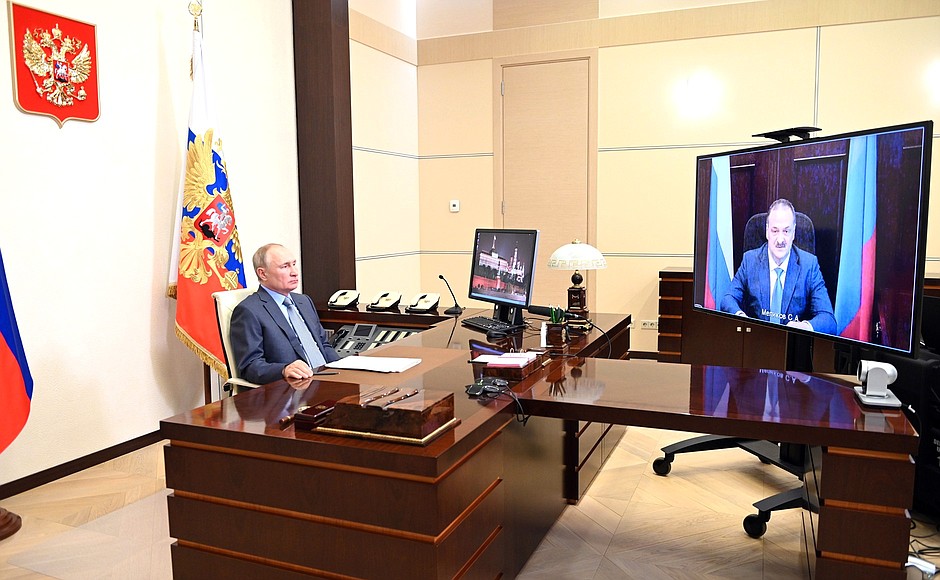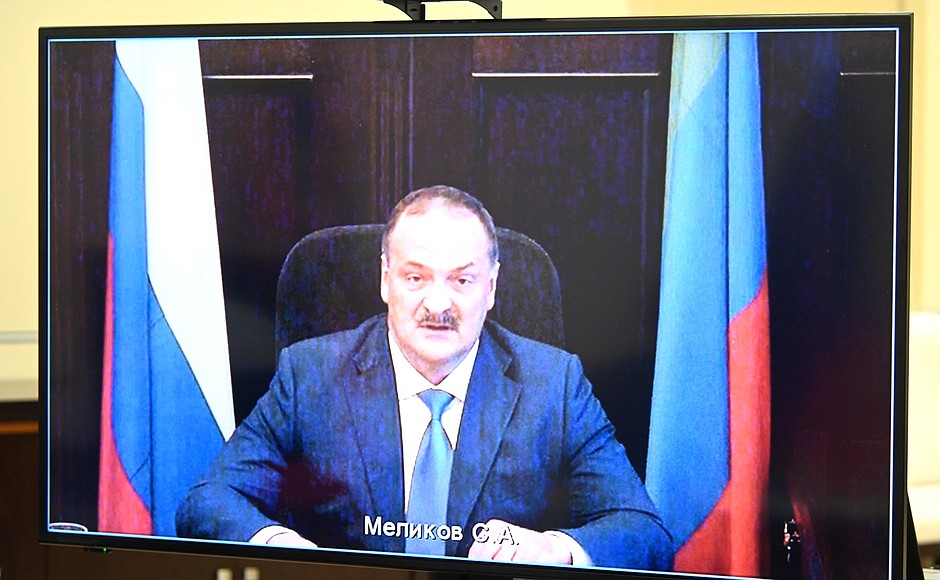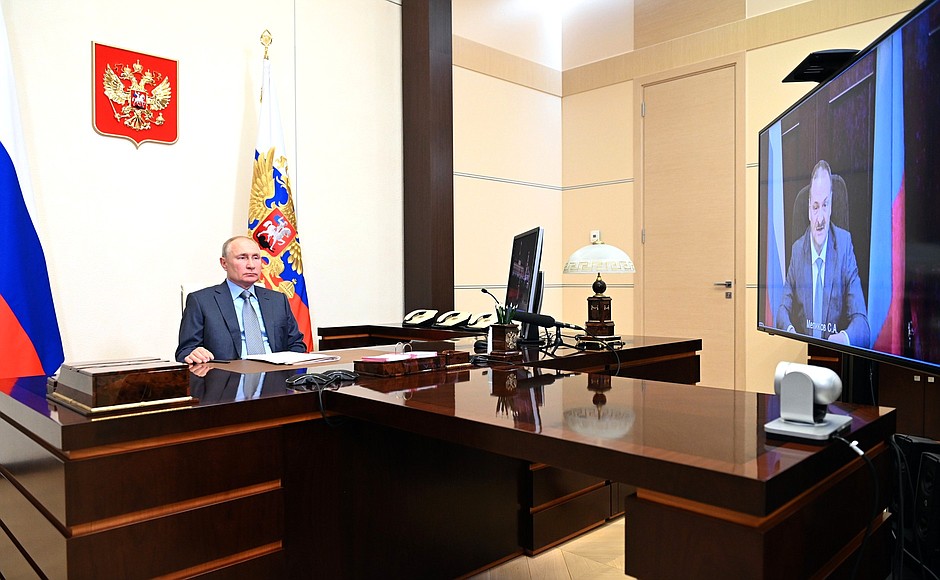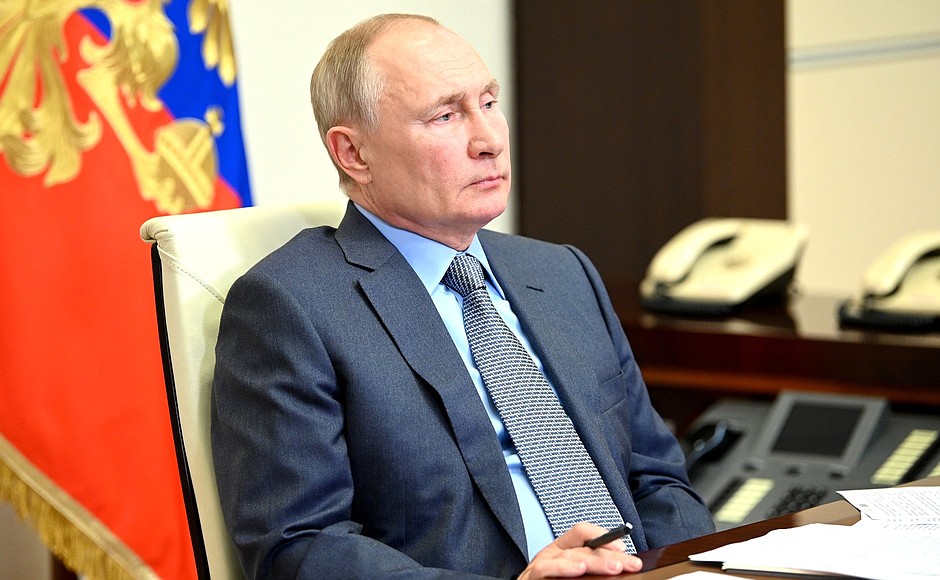Sergei Melikov began his report with the coronavirus situation. Over the entire period of the coronavirus outbreak in Daghestan, more than 40,000 cases of COVID have been recorded. The region deployed 14 labs for testing and allocated 67 million rubles from the regional budget for the response effort. A COVID-19 response centre has been established and additional CT scan centres have been set up, in the foothills and mountainous areas among other places. An air ambulance is being used to evacuate patients from mountainous areas. The region currently has 86 stationary and 58 mobile vaccination points.
According to Sergei Melikov, the situation with COVID-19 is definitely impacting the region’s development, but at the same time, there are system-wide problems in Daghestan that had been there for decades and had affected the socioeconomic and sociopolitical situation. The most acute of them is the lack of running water, sewerage, electricity and gas supply infrastructure in some areas, or the relevant facilities being in need of repair, which is a serious deterrent to the implementation of many investment projects that are aimed at creating new industrial facilities and new jobs. The republic cannot fully open up the tourist potential of the Caspian Sea coast due to untreated wastewater. Water supply and sewerage facilities built in the 1970s are worn out and have never been significantly repaired.
The Acting Head of the Republic considers it expedient to propose that to solve these problems the Government of the Russian Federation include interbudgetary transfers to Daghestan in the draft federal budget for 2022 and the planning period of 2023 and 2024.
According to Sergei Melikov, ensuring a stable and high-quality energy supply remains another important issue. In order to normalise the situation in the energy network complex, upgrading, technical re-equipment, renovation of energy facilities and construction of new ones are necessary. Mr Melikov considers it essential to consider the republic’s proposal to finance this programme with the required amount 6.9 billion rubles. The underdeveloped gas network system is another problem.
In order to address current major problems regarding a continuous reliable supply of resources to people and enterprises, Sergei Melikov suggested developing a separate complex programme for 2022–2024. As the infrastructure restrictions are lifted, measures will be taken to accelerate the development of industry, agriculture, construction, tourism and other areas. Sergei Melikov asked for the President’s support in addressing these problems, which have been dragging on for years, and some for decades.
The development of the reclamation system as a basis for the development of agriculture in Daghestan was also discussed. Up to 30 percent of the employed population works in this sphere. The republic accounts for about 10 percent of all Russia’s irrigated land and more than 35 percent of the irrigated land in the North Caucasus Federal District. Irrigation systems in Daghestan were mostly created in the 1950s–1960s. Their precarious state results in a shortfall of 500,000–600,000 tonnes of agricultural products annually in the republic in terms of grain. Desertification, which worsened during the 2020 draught, is another acute problem. As a result, over 120 farms in 22 districts of the republic that move their livestock to flat winter pastures are facing difficult conditions. Moreover, the state of the reclamation complex has a significant effect on the development of the fishery complex, where ensuring the natural reproduction of the fish supply in the Caspian Sea and the republic’s lakes is an essential requirement.
According to Sergei Melikov, in order to advance the republic’s land reclamation complex, it is important to secure funding from the federal budget and include a dedicated subprogramme to reclaim pasture lands in the state programme for integrating agricultural lands into the farming business and expanding the land reclamation complex of the Russian Federation.
Another serious challenge that is holding back Daghestan’s development is the unsatisfactory status of the republic's main transport artery, the R-217 federal motorway, also known as the Kavkaz Motorway. Mr Melikov asked the President to instruct the Government to provide funding in 2022 and beyond for addressing this problem. At the same time, the acting head of the republic noted that many other problems are being resolved at the regional level, and thanked the Government, the Ministry of Economic Development, and the Ministry of Construction, Housing and Utilities for their help.
Mr Melikov raised another issue that is important for the republic, namely, the upcoming celebration at the federal level of the 100th birth anniversary of the most famous, in his view, Daghestani – poet Rasul Gamzatov. This celebration is an honourable and significant event for Daghestan. The acting head of Daghestan invited the President to visit the republic during the celebrations.
Vladimir Putin thanked Mr Melikov for the invitation, noting that Rasul Gamzatov’s poems made not only his native Daghestan famous, but the entire Soviet Union, and Russia.
With regard to current and future affairs, the President said that resources for the infrastructure have been allocated throughout the country, and it is now important to fit into the corresponding programmes, and promised to issue an instruction to the Government.
Overall, the President said, Daghestan is moving forward and, in many respects, is outperforming other Russian regions in terms of construction. Manufacturing output is on the rise, and agriculture has slightly improved. Particularly encouraging is the availability of investment in fixed assets, which will help resolve one of the main problems plaguing Daghestan and all of the North Caucasus – improving the situation on the labour market.
The President reaffirmed that he would issue all the necessary instructions to the Government and wished Sergei Melikov every success.




